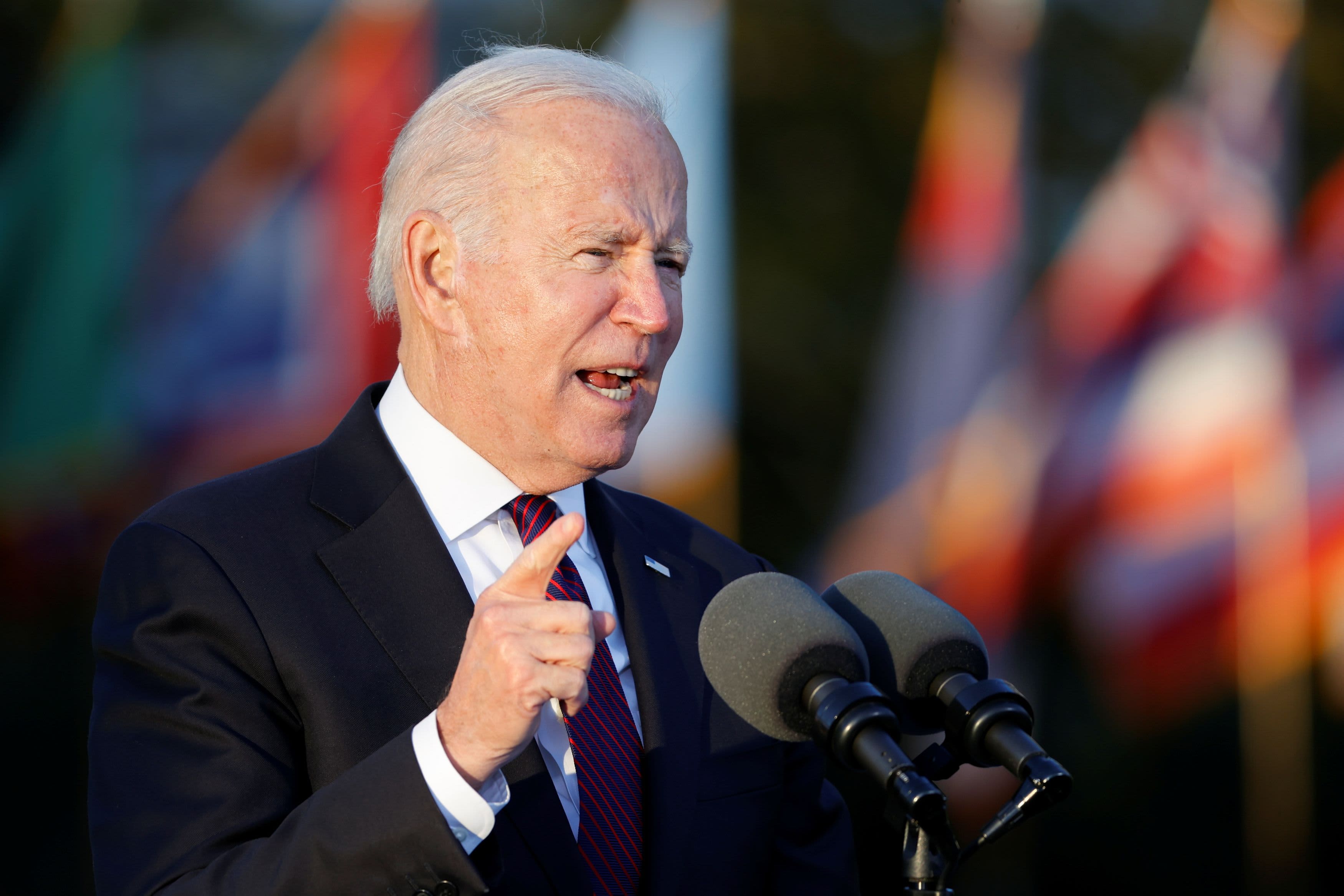President Joe Biden said Tuesday that the administration will tap the Strategic Petroleum Reserve as part of a global effort from energy-consuming nations to calm 2021’s rapid rise in fuel prices.
The coordinated release between the U.S., India, China, Japan, Republic of Korea and the United Kingdom is the first such move of its kind.
In total the U.S. will release 50 million barrels from the SPR. Of the total 32 million barrels will be an exchange over the next several months, while 18 million barrels will be an acceleration of a previously authorized sale.
“The President stands ready to take additional action, if needed, and is prepared to use his full authorities working in coordination with the rest of the world to maintain adequate supply as we exit the pandemic,” the White House said in a statement.
Tuesday’s announcement follows the administration saying for months that it was looking into the tools at its disposable as West Texas Intermediate crude futures surged to a seven-year high above $85.
Prices at the pump have followed the ascent, and are currently hovering around their highest level in seven years. The national average for a gallon of gas stood at $3.409 on Monday, according to AAA, up from $2.11 one year ago.
“This is a well timed move to try and lower oil prices,” said John Kilduff, partner at Again Capital. “This added supply should help to bridge the production shortfall ahead of winter, especially if we get confirmation of meaningful supply, as well, from several of the major Asian consuming nations,” he added.
As of Nov. 19 the SPR held 604.5 million barrels spread across four sites, according to the Department of Energy. It takes 13 days after a presidential announcement for the oil to hit the market, according to DofE.
In total the SPR, which was founded in 1975 after the Arab Oil Embargo, can hold 727 million barrels.
The SPR can be tapped in three ways, according to the DofE: a full drawdown to counter a “severe energy interruption,” a limited drawdown of up to 30 million barrels, or a drawdown for an exchange or test sale.
Following the announcement U.S. oil bounced off its low, trading 28 cents lower at $76.50 per barrel. International benchmark Brent crude stood at $79.98 per barrel, up 34 cents.
